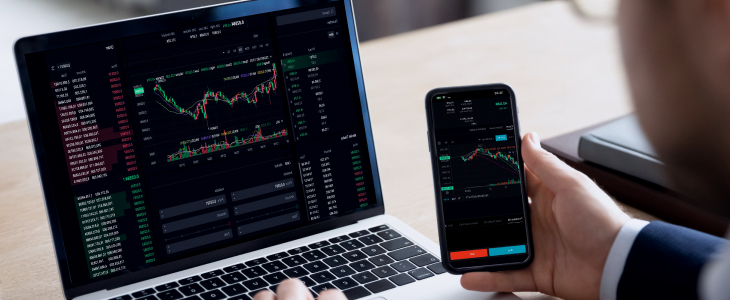
Welcome to your journey into the world of forex trading! Whether you’re seeking to earn additional income or aiming to dive into trading as a full-time career, understanding the basics of forex trading is crucial. Our forex trading course for beginners Cameroonian Trading Platforms course is tailored specifically for beginners, providing you with the foundational knowledge needed to navigate the forex market successfully. This article will guide you through the core concepts and practical strategies of forex trading.
What is Forex Trading?
Forex, or foreign exchange, refers to the global marketplace for buying and selling currencies. It’s the largest and most liquid market in the world, with a daily trading volume exceeding $6 trillion. Forex trading involves speculation on the price movements of currency pairs, aiming to profit from fluctuations in exchange rates. Understanding how this market operates is the first step for any aspiring trader.
Getting Started with Forex Trading
For beginners, entering the world of forex trading might seem daunting due to its complexity and vast information available online. However, with the right approach and mindset, anyone can learn how to trade successfully. Here are the foundational steps to get you started:
1. Understanding Forex Market Structure
The forex market operates 24 hours a day, five days a week, enabling traders from all corners of the globe to participate. The market is divided into three major trading sessions: Sydney, Tokyo, and London. Each session has its own characteristics and trading volumes, which can influence price movements. Knowing when to trade and which sessions to focus on based on your schedule is essential for maximizing your trading potential.
2. Learning the Terminology
Familiarize yourself with the basic terminologies used in forex trading. Here are some key terms that every trader should know:
- Currency Pair: The quotation of one currency against another. For example, EUR/USD shows the value of the Euro in relation to the US Dollar.
- Pip: The smallest price move in a currency pair, typically the fourth decimal place.
- Leverage: Allows traders to control a larger position with a smaller amount of capital.
- Spread: The difference between the bid price and the ask price.

3. Choosing the Right Trading Platform
Selecting a reputable trading platform is critical for your trading success. Look for platforms that offer user-friendly interfaces, excellent customer service, and a variety of trading tools. Consider platforms that allow you to practice trading with a demo account before investing real money. This helps you get a feel for the market without financial risk.
Risk Management in Forex Trading
One of the most important aspects of forex trading is risk management. It involves strategies for protecting your trading capital while maximizing potential gains. Here are some fundamental risk management techniques you should adopt:
- Set Stop-Loss Orders: A stop-loss order automatically closes your trade when the market moves against you by a specified amount. This minimizes losses and helps you avoid emotional decisions during trading.
- Risk-to-Reward Ratio: Before entering a trade, define how much you’re willing to risk compared to the potential reward. A common strategy is to aim for a risk-to-reward ratio of 1:2 or higher.
- Diversification: Avoid putting all your capital into a single trade or currency pair. Diversifying your trades spreads risk across multiple positions.
Developing Your Trading Strategy
Creating a trading strategy is essential for consistent success in forex trading. A well-defined strategy considers market conditions, your trading goals, and your risk tolerance. There are several types of trading strategies:
- Day Trading: Involves making multiple trades within a day, taking advantage of small price movements.
- Swing Trading: Focuses on capturing short- to medium-term gains over a few days or weeks.
- Position Trading: Involves holding trades for the long term, aiming for significant price movements over weeks or months.
Continuous Learning and Improvement
The forex market is always evolving, influenced by economic news, geopolitical events, and market sentiment. As a beginner, it’s important to commit to continuous learning. Here are some ways to enhance your trading knowledge:
- Read Books and Blogs: There are numerous resources available that cover different aspects of forex trading.
- Join Online Communities: Engage with other traders through forums and social media. Participate in discussions to learn from their experiences.
- Attend Webinars and Courses: Many professionals offer free and paid courses that delve deeper into trading strategies, market analysis, and more.
Final Thoughts
Starting your journey in forex trading can be both exciting and challenging. By investing time in learning the basics, understanding market mechanics, and developing a solid trading strategy, you can increase your chances of becoming a successful trader. Remember, patience and discipline are essential; never rush into trades based on emotions or market hype. Utilize the resources available, practice regularly, and consider joining a forex trading course for beginners to set a strong foundation for your trading endeavors.
Happy trading!

